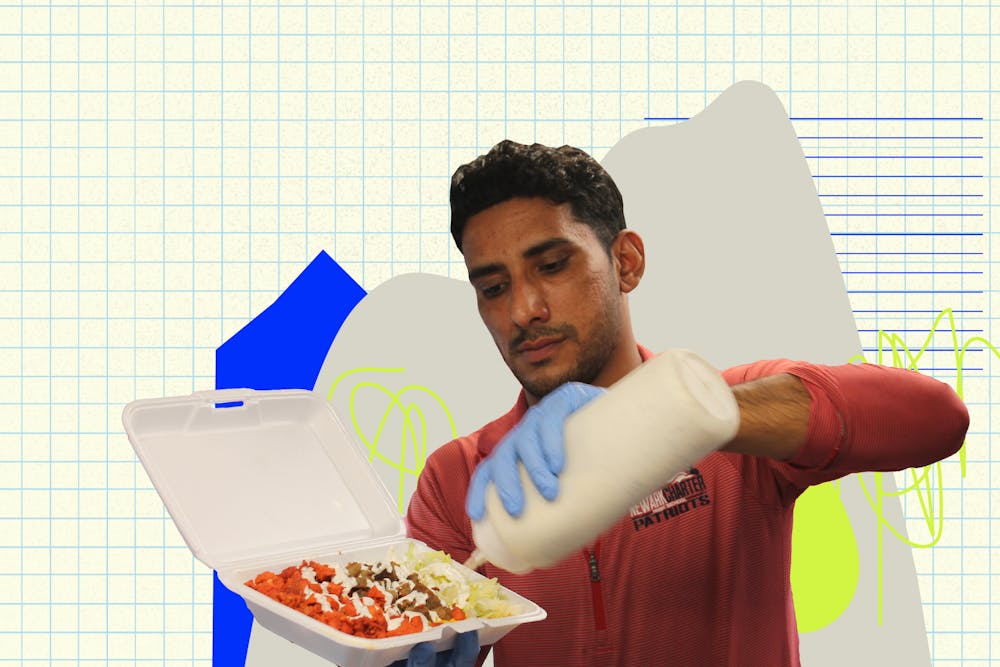When there are dozens of competitors making exactly the same product as you, how do you stand out from the crowd?
Rahim Khan says it's all about customer service.
Khan operates the halal food cart, University City Gyro, on 38th and Spruce streets, across the street from the Upper Quad. His cart is plastered with pictures of lamb gyros, crispy falafel, and—his best seller—chicken over rice. The smell of shawarma spices forms an inescapable cloud that settles over his corner of Spruce, enticing passersby.
There are dozens of halal carts in University City with identical menus featuring Middle Eastern meats, rice, salad, and the iconic white sauce. Khan’s closest competitor is only 20 feet down the road.
Yet Khan’s cart consistently attracts lines at lunchtime.
“The usual?” he asks customers, grinning ear to ear. Not only does he remember the orders of loyal customers, but he offers “thank you” tokens for their business.
“Free chickpeas on the side or an extra falafel keeps them coming back,” he says. He shouts, “Hey, what’s up man?” at former customers as they walk by, prompting surprise as they realize that the halal cart man remembers them.
Khan was born in Peshawar, a Pakistani city bordering the mountains of Afghanistan. He identifies as a Pashtun, an ethnic group located in Iran, Afghanistan, and Northern Pakistan.
In 2019, a family friend successfully applied for a work visa and brought Khan to the United States to work together in his halal cart. Before arriving in Philadelphia, Khan had never left Peshawar before.
“The first six months were very hard," he says. "My culture is so different. When the pandemic started, it was so tough. I did not know anything about Philly, and I did not know what to do. The owner of the cart helped me so much and gave me a place to stay, but nobody but me knows how tough it was,” Khan says.
His family eagerly awaits his daily calls and messages. “I have five brothers and two sisters all in Peshawar. I support them all,” he says.
Every morning, Khan wakes up at 6 a.m. for morning prayers. He begins cooking the day’s food around 8 a.m. He usually closes down the cart around 6 p.m. Khan works six days a week, Sunday being his only day off.
“I just want to work for my family," he says. "I work hard for them. It's hard work.” But he insists he takes full advantage of his day off.
“I love to play cricket on Sundays. I loved cricket in Pakistan, and I play cricket here too. I was captain of my high school cricket team in Pakistan. Sometimes [I play] volleyball because it is my second favorite,” he says, laughing.
Khan has two years left on his visa, at which point he will return to Peshawar. “The first thing I will do is get married to a girl my mother finds for me,” he says. Now that he has earned some money, his parents and siblings want him to start his own family.
Though Khan’s time in America is limited, he's grateful for the opportunities it has given him—both to support his family back home and to dismantle stereotypes about his culture through food.
“When [people] see Pakistanis, they think of terrorists," he says. "I am grateful that my customers treat me so well.”
Khan is parked on 38th and Spruce streets every day except Sunday, feeding hungry Penn students and Penn Medicine workers halal food with his characteristic wide smile. In a city full of identical food carts, Khan’s larger–than–life personality makes his stand out.

